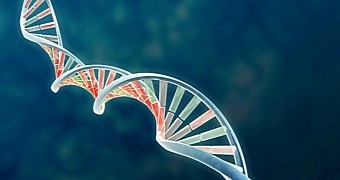A paper published in yesterday's issue of the journal Nature Genetics announces the discovery of a previously undocumented disease that researchers say affects both an individual's heart and their guts.
The rare condition, now known to the scientific community as chronic atrial intestinal dysrhythmia syndrome (CAID syndrome, for short), appears to be caused by a genetic mutation dating back to the 12th century.
Even more interesting, Vikings appear to have been the ones to first display this genetic mutation and to pass it on to their offspring, the researchers who identified and described this disease explain.
The ins and outs of CAID syndrome
Writing in the journal Nature Genetics, Dr. Gregor Andelfinger with Canada's CHU Sainte-Justine and fellow researchers explain that this newly discovered disease takes its toll on both a patient's heart rate and their intestinal movements.
More precisely, CAID syndrome causes both a slow heart rate and chronic intestinal pseudo-obstruction. To address the first symptom, doctors either prescribe drugs or, in 50% of cases, implant a pacemaker.
The intestinal issues CAID syndrome patients experience very often translate into an impossibility of feeding in a manner other than intravenously. What's more, it appears that, in some extreme cases, individuals suffering from this disease must undergo bowel surgery.
“The symptoms are severe, and treatments are very aggressive and invasive,” Dr. Philippe Chetaille summed up the ins and out of this newly discovered rare disease, as cited by Medical Express.
Identifying this previously undocumented disease
The specialists who conducted this investigation explain that, in order to identify this previously undocumented disease and establish its cause, they looked at the genetic makeup of nine CAID syndrome patients. Of these patients, eight were of French-Canadian origin, and another was from Scandinavia.
It was thus discovered that these patients all carried a mutation in a gene dubbed SGOL1. This mutation was also identified in zebrafish experiencing the same heart and intestinal trouble affecting the nine patients that the scientists focused on.
“To lift any doubts concerning the role of the identified mutation, we also made sure it was ruled out in people showing only one of the profiles,” explained Dr. Gregor Andelfinger. “The mutated fish showed the same cardiac symptoms as humans, which confirms the causal role played by SGOL1,” he added.
Evidence at hand indicates that the genetic mutation responsible for causing this disease dates back to the 12th century and was first displayed by Vikings, who passed it on to their offspring and thus enabled it to spread among land populations.
What's next?
The scientists who identified this new disease say that they have already made a diagnostic test for CAID syndrome available. They now wish to focus on better understanding the genetic mutation causing this disease.
It is believed that the mutation causes the symptoms associated with this condition by reducing the protection of nerve and muscle cells in a patient's heart and guts. If this is indeed the case, scientists might be able to develop better treatment options for folks diagnosed with CAID syndrome.

 14 DAY TRIAL //
14 DAY TRIAL //